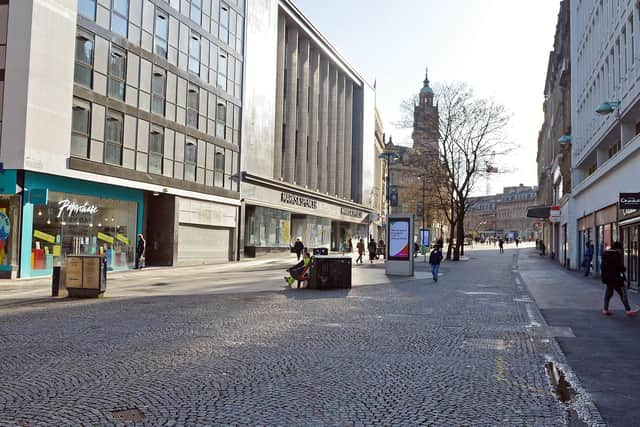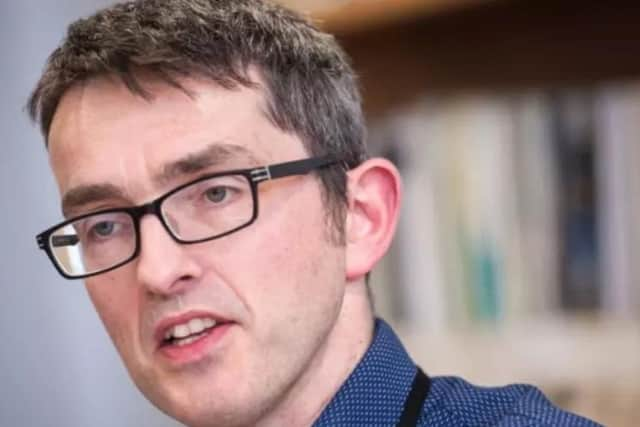Have the lockdowns worked?: Sheffield health chief looks back on city's reaction to Covid as infection rate rises
and live on Freeview channel 276
In Sheffield the infection rate has risen slightly in the last week on record, to 129.3 per 100,000 of the population (reflecting 756 new cases) in the seven days to February 19.
The week before it was 128.1 (749 new cases).
And while an increase of seven new cases in a week across the whole city could reflect as small a difference as the number of people going out to get tested as the weather improves, it still means Sheffield’s rate remains higher than the national average of 119 per 100,000 people.


Advertisement
Hide AdAdvertisement
Hide AdIn spite of this rise, Director of Public Health Greg Fell said yesterday that he expected the infection rate in Sheffield to generally decline in the coming weeks and then plateau at around 100 cases per 100,000 people – significantly lower than it was before the lockdown began in January.
He explained: “We have got to a point where R is below one but not that far below. So for each case slightly less than one other person is infected. So the infection rate is going down, but slowly.
“I don’t think it will get back to as low as it was last summer. This is because the Kent variant is now the most common in the country, accounting for around 75 per cent of cases.


"This variant is more infectious and has a longer period where it is infectious than the original strain. This means more people will be infected.”
Advertisement
Hide AdAdvertisement
Hide AdHowever, he added that if the infection rate goes down to around 100 and stays there, he believes it will be possible to keep on top of spikes and the city can start to return to normal.
"We are aiming for a really low level of the disease, a high number of vaccines and an aggressive response when there are flare ups,” he said.
Now, looking back, Mr Fell has considered the city’s response to Covid and what could have been done differently.
Mr Fell said: “Nobody has done anything perfectly, and hindsight is really easy.
Advertisement
Hide AdAdvertisement
Hide Ad"The country could have and probably should have locked down sooner. There has been very clear analysis about that. We did not act soon enough.
"I wish that we on a local level had more control over the basic tools. We never have, and still don’t have, control over the testing programme or contact tracing or any tools that enable people to afford isolation.
"I wish we did have control over those things. That is something we need to reflect on in times to come.
“Personally I wish we had gone for more widespread masking early on.
Advertisement
Hide AdAdvertisement
Hide Ad"We could have gone a bit harder and a bit sooner on that. We have not had a perfect response and we have learned an awful lot from it.
"And although lockdown is coming to an end we have a long way to go and a lot more to learn.
"People around the world will need to adapt to living with Covid for years.”